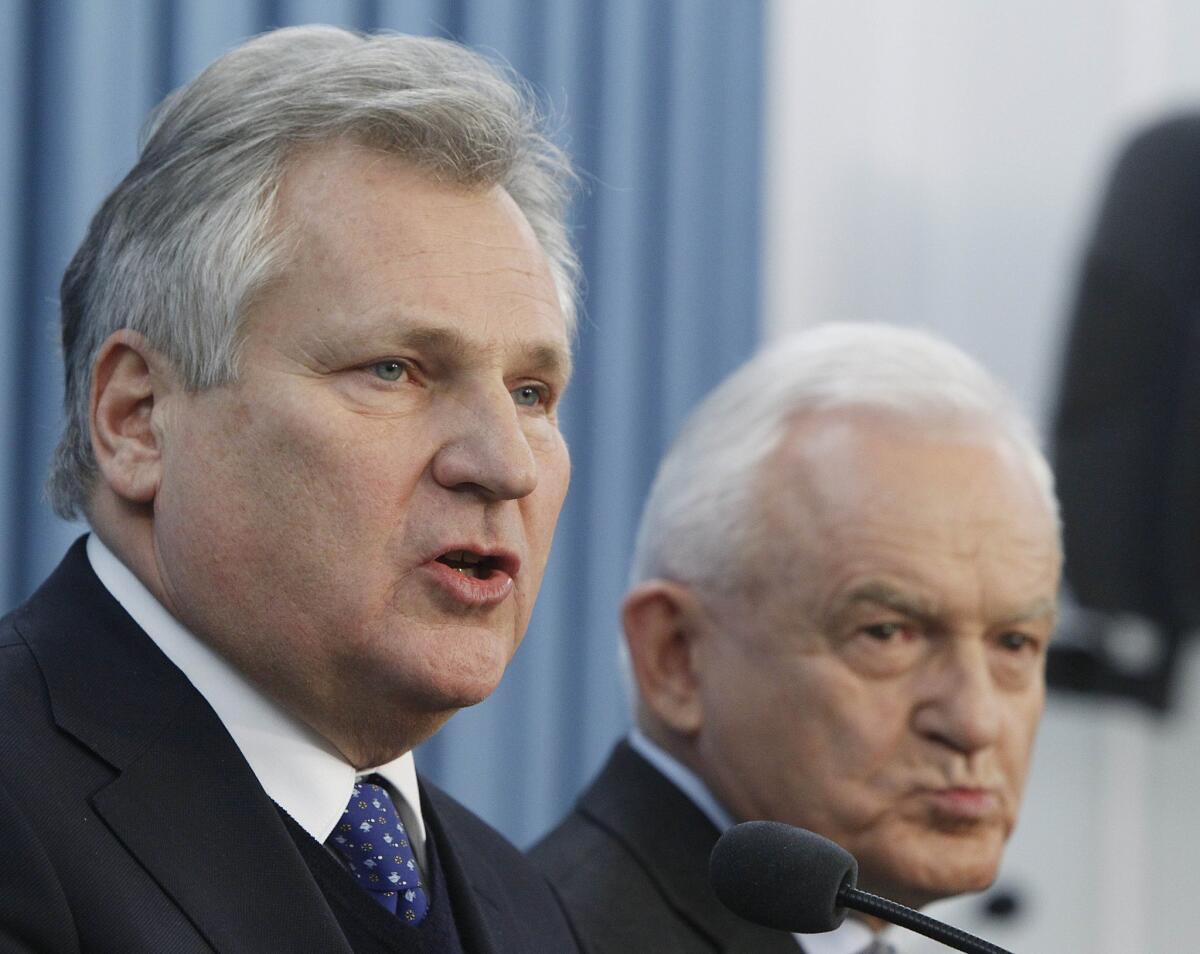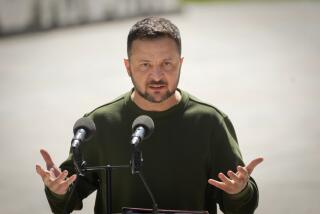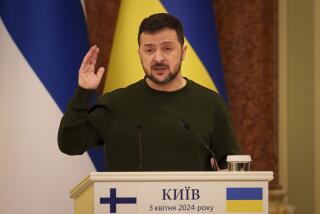Polish ex-leaders confess complicity after CIA torture report

A U.S. Senate report on interrogation abuses by CIA operatives around the world spurred two former leaders in Poland to confirm, after years of denials, that the country hosted one of the “black site” detention facilities where the alleged torture occurred.
Former President Aleksander Kwasniewski said in a radio interview on Wednesday that he approved the clandestine operation in 2002 after the U.S. administration of President George W. Bush urged Poland to assist in the global war against terrorism launched after the Sept. 11, 2001, attacks in New York and Washington.
But Kwasniewski and former Prime Minister Leszek Miller denied knowledge of the abuses reportedly committed during the interrogation of terror suspects, including Sept. 11 mastermind Khalid Shaikh Mohammed, Al Qaeda kingpin Abu Zubaydah and the prisoner accused of bombing the U.S. destroyer Cole in 2000, Abd al Rahim al Nashiri.
“The U.S. side asked the Polish side to find a quiet site where it could conduct activity that would allow to effectively obtain information from persons who had declared readiness to cooperate with the U.S. side,” Kwasniewski said at a Warsaw press conference, according to the Associated Press.
The CIA site opened in December 2002 and closed 10 months later, Kwasniewski said, after he pressured Bush to wind up the operation over which Polish officials felt they had too little control. Kwasniewski was president of Poland from 1995 to 2005.
Neither Poland nor other foreign venues used for CIA interrogations were specifically named in the U.S. Senate report released Tuesday. The heavily redacted report detailed disturbing incidents of “enhanced interrogation techniques” that subjected detainees to waterboarding, painful and humiliating rectal insertions and “stress positions” designed to force them to reveal any knowledge of pending terrorist attacks. No useful intelligence was procured through the abuses, the Senate report concluded.
But details of the interrogations of the so-called high-value detainees taken to the Polish site in the northeastern town of Stare Kiejkuty made it clear to Polish officials with knowledge of their government’s complicity that some of the incidents referenced in the report had occurred in Poland. The report also alluded to “multiple, ongoing difficulties” with the unidentified host country regarding the transfer of some suspects, in particular Mohammed.
Kwasniewski and Miller criticized the Senate disclosures as likely to undermine confidence in the United States as an ally at a time when countries like Poland face new insecurities after Russia’s aggression against neighboring Ukraine.
In spite of Polish leaders’ persistent denials, the country’s collaboration with the CIA interrogations has been disclosed through independent investigations by media and human rights groups, as well as a judgment by the European Court of Human Rights in July that Poland was liable for injuries to a former CIA detainee committed on its soil.
International reaction to the Senate disclosures about CIA interrogation excesses has been muted in political circles, although human rights organizations have demanded that the architects and perpetrators of techniques considered tantamount to torture be brought to justice.
Jihadist calls for revenge against Americans have appeared online in response to the report’s release, the Site IntelGroup reported in a compilation of online posts from its monitoring of extremist websites.
Among the warnings from self-described jihadists were predictions that the disclosures “are going to radicalize a whole generation” of Muslims and an appeal to Allah to “use us as arrows to strike the heads of these crusaders.”
Follow @cjwilliamslat for the latest international news 24/7
More to Read
Sign up for Essential California
The most important California stories and recommendations in your inbox every morning.
You may occasionally receive promotional content from the Los Angeles Times.










